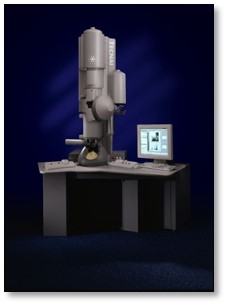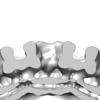[English] 日本語
 Yorodumi
Yorodumi- EMDB-4209: Subtomogram average of Rift Valley fever virus hexamer at pH 5.0 ... -
+ Open data
Open data
- Basic information
Basic information
| Entry | Database: EMDB / ID: EMD-4209 | |||||||||
|---|---|---|---|---|---|---|---|---|---|---|
| Title | Subtomogram average of Rift Valley fever virus hexamer at pH 5.0 in absence of target membrane | |||||||||
 Map data Map data | Subtomogram average of Rift Valley fever virus hexamer without a target membrane at pH 5.0 | |||||||||
 Sample Sample |
| |||||||||
| Biological species |   Rift Valley fever virus Rift Valley fever virus | |||||||||
| Method | subtomogram averaging / cryo EM / Resolution: 16.0 Å | |||||||||
 Authors Authors | Sai L / Huiskonen JT | |||||||||
 Citation Citation |  Journal: Nat Commun / Year: 2018 Journal: Nat Commun / Year: 2018Title: Shielding and activation of a viral membrane fusion protein. Authors: Steinar Halldorsson / Sai Li / Mengqiu Li / Karl Harlos / Thomas A Bowden / Juha T Huiskonen /   Abstract: Entry of enveloped viruses relies on insertion of hydrophobic residues of the viral fusion protein into the host cell membrane. However, the intermediate conformations during fusion remain unknown. ...Entry of enveloped viruses relies on insertion of hydrophobic residues of the viral fusion protein into the host cell membrane. However, the intermediate conformations during fusion remain unknown. Here, we address the fusion mechanism of Rift Valley fever virus. We determine the crystal structure of the Gn glycoprotein and fit it with the Gc fusion protein into cryo-electron microscopy reconstructions of the virion. Our analysis reveals how the Gn shields the hydrophobic fusion loops of the Gc, preventing premature fusion. Electron cryotomography of virions interacting with membranes under acidic conditions reveals how the fusogenic Gc is activated upon removal of the Gn shield. Repositioning of the Gn allows extension of Gc and insertion of fusion loops in the outer leaflet of the target membrane. These data show early structural transitions that enveloped viruses undergo during host cell entry and indicate that analogous shielding mechanisms are utilized across diverse virus families. | |||||||||
| History |
|
- Structure visualization
Structure visualization
| Movie |
 Movie viewer Movie viewer |
|---|---|
| Structure viewer | EM map:  SurfView SurfView Molmil Molmil Jmol/JSmol Jmol/JSmol |
| Supplemental images |
- Downloads & links
Downloads & links
-EMDB archive
| Map data |  emd_4209.map.gz emd_4209.map.gz | 7.1 MB |  EMDB map data format EMDB map data format | |
|---|---|---|---|---|
| Header (meta data) |  emd-4209-v30.xml emd-4209-v30.xml emd-4209.xml emd-4209.xml | 9.9 KB 9.9 KB | Display Display |  EMDB header EMDB header |
| Images |  emd_4209.png emd_4209.png | 45.4 KB | ||
| Archive directory |  http://ftp.pdbj.org/pub/emdb/structures/EMD-4209 http://ftp.pdbj.org/pub/emdb/structures/EMD-4209 ftp://ftp.pdbj.org/pub/emdb/structures/EMD-4209 ftp://ftp.pdbj.org/pub/emdb/structures/EMD-4209 | HTTPS FTP |
-Validation report
| Summary document |  emd_4209_validation.pdf.gz emd_4209_validation.pdf.gz | 231.3 KB | Display |  EMDB validaton report EMDB validaton report |
|---|---|---|---|---|
| Full document |  emd_4209_full_validation.pdf.gz emd_4209_full_validation.pdf.gz | 230.4 KB | Display | |
| Data in XML |  emd_4209_validation.xml.gz emd_4209_validation.xml.gz | 5.8 KB | Display | |
| Arichive directory |  https://ftp.pdbj.org/pub/emdb/validation_reports/EMD-4209 https://ftp.pdbj.org/pub/emdb/validation_reports/EMD-4209 ftp://ftp.pdbj.org/pub/emdb/validation_reports/EMD-4209 ftp://ftp.pdbj.org/pub/emdb/validation_reports/EMD-4209 | HTTPS FTP |
-Related structure data
| Related structure data |  4197C  4198C  4199C  4200C  4201C  4202C  4203C  4204C  4205C  4206C  4207C  4208C  4210C  4211C  6f8pC  6f9bC  6f9cC  6f9dC  6f9eC  6f9fC C: citing same article ( |
|---|---|
| Similar structure data |
- Links
Links
| EMDB pages |  EMDB (EBI/PDBe) / EMDB (EBI/PDBe) /  EMDataResource EMDataResource |
|---|
- Map
Map
| File |  Download / File: emd_4209.map.gz / Format: CCP4 / Size: 8 MB / Type: IMAGE STORED AS FLOATING POINT NUMBER (4 BYTES) Download / File: emd_4209.map.gz / Format: CCP4 / Size: 8 MB / Type: IMAGE STORED AS FLOATING POINT NUMBER (4 BYTES) | ||||||||||||||||||||||||||||||||||||||||||||||||||||||||||||
|---|---|---|---|---|---|---|---|---|---|---|---|---|---|---|---|---|---|---|---|---|---|---|---|---|---|---|---|---|---|---|---|---|---|---|---|---|---|---|---|---|---|---|---|---|---|---|---|---|---|---|---|---|---|---|---|---|---|---|---|---|---|
| Annotation | Subtomogram average of Rift Valley fever virus hexamer without a target membrane at pH 5.0 | ||||||||||||||||||||||||||||||||||||||||||||||||||||||||||||
| Projections & slices | Image control
Images are generated by Spider. | ||||||||||||||||||||||||||||||||||||||||||||||||||||||||||||
| Voxel size | X=Y=Z: 2.7 Å | ||||||||||||||||||||||||||||||||||||||||||||||||||||||||||||
| Density |
| ||||||||||||||||||||||||||||||||||||||||||||||||||||||||||||
| Symmetry | Space group: 1 | ||||||||||||||||||||||||||||||||||||||||||||||||||||||||||||
| Details | EMDB XML:
CCP4 map header:
| ||||||||||||||||||||||||||||||||||||||||||||||||||||||||||||
-Supplemental data
- Sample components
Sample components
-Entire : Rift Valley fever virus
| Entire | Name:   Rift Valley fever virus Rift Valley fever virus |
|---|---|
| Components |
|
-Supramolecule #1: Rift Valley fever virus
| Supramolecule | Name: Rift Valley fever virus / type: virus / ID: 1 / Parent: 0 / Macromolecule list: #1-#2 / Details: Cultured in Vero cells / NCBI-ID: 11588 / Sci species name: Rift Valley fever virus / Virus type: VIRION / Virus isolate: OTHER / Virus enveloped: Yes / Virus empty: No |
|---|---|
| Host (natural) | Organism:  Homo sapiens (human) Homo sapiens (human) |
| Virus shell | Shell ID: 1 / Name: Glycoprotein shell / Diameter: 1100.0 Å / T number (triangulation number): 12 |
-Experimental details
-Structure determination
| Method | cryo EM |
|---|---|
 Processing Processing | subtomogram averaging |
| Aggregation state | particle |
- Sample preparation
Sample preparation
| Buffer | pH: 5 / Details: PBS |
|---|---|
| Vitrification | Cryogen name: ETHANE-PROPANE |
| Details | Unfixed sample with added liposomes |
- Electron microscopy
Electron microscopy
| Microscope | FEI TECNAI F30 |
|---|---|
| Specialist optics | Energy filter - Name: GIF Quantum LS / Energy filter - Lower energy threshold: 0 eV / Energy filter - Upper energy threshold: 20 eV |
| Image recording | Film or detector model: GATAN K2 SUMMIT (4k x 4k) / Detector mode: COUNTING / Digitization - Frames/image: 1-8 / Average exposure time: 3.2 sec. / Average electron dose: 150.0 e/Å2 |
| Electron beam | Acceleration voltage: 300 kV / Electron source:  FIELD EMISSION GUN FIELD EMISSION GUN |
| Electron optics | Illumination mode: FLOOD BEAM / Imaging mode: BRIGHT FIELD |
| Experimental equipment |  Model: Tecnai F30 / Image courtesy: FEI Company |
- Image processing
Image processing
| Final reconstruction | Applied symmetry - Point group: C6 (6 fold cyclic) / Resolution.type: BY AUTHOR / Resolution: 16.0 Å / Resolution method: FSC 0.143 CUT-OFF / Software - Name: Dynamo / Number subtomograms used: 2300 | ||||||
|---|---|---|---|---|---|---|---|
| Extraction | Number tomograms: 17 / Number images used: 2300 | ||||||
| CTF correction | Software:
| ||||||
| Final angle assignment | Type: NOT APPLICABLE / Software - Name: Dynamo |
 Movie
Movie Controller
Controller







 Z (Sec.)
Z (Sec.) Y (Row.)
Y (Row.) X (Col.)
X (Col.)





















